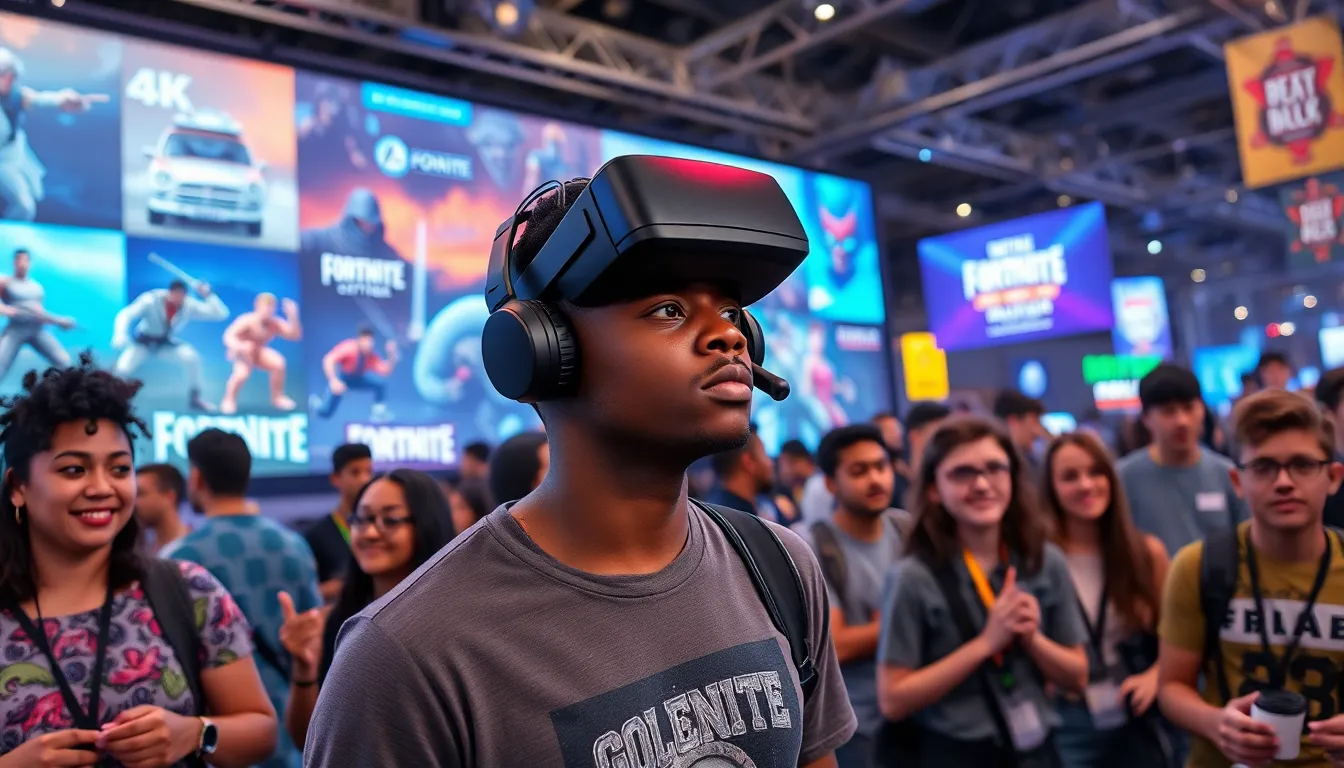The gaming landscape continues to evolve as technology advances and player preferences shift. From the iconic pixelated characters of the 1980s to today’s breathtakingly realistic graphics, gaming has become a multifaceted art form that spans genres, styles, and platforms. In this exploration of gaming culture, we investigate into its history, the genres that have shaped it, the importance of community, and the promising future trends. Join as we embark on a journey through the realms of virtual worlds and the significant impact they have on society.
Table of Contents
ToggleThe Evolution Of Gaming: From Pixels To Realism

The journey of gaming is akin to a narrative filled with twists and turns, each step forward marked by technological innovation and creative breakthroughs.
Memorable Moments In Gaming History
From the early arcade games in the 1970s to the first home consoles, gaming has witnessed several defining moments. The launch of the Atari 2600 in 1977 revolutionized home entertainment, allowing players to experience games like ‘Space Invaders’ and ‘Pitfall.’ in their living rooms. The rise of 3D graphics in the 1990s, highlighted by groundbreaking titles such as ‘Doom’ and ‘Final Fantasy VII,’ significantly expanded the possibilities of storytelling in games.
Another pivotal moment came in the early 2000s with the introduction of online gaming. Titles like ‘World of Warcraft’ and ‘Counter-Strike’ not only contributed to the growth of gaming communities but also changed how games were consumed and played. Today, franchises like ‘Call of Duty’ and ‘Fortnite’ are not just games: they are cultural phenomena that attract millions and define entertainment for generation after generation.
Impact Of Technology On Gaming Experiences
Advancements in technology have continually pushed the boundaries of what is possible in gaming. The leap from 8-bit graphics to high-definition 4K visuals has changed not just the look of games but also the emotional engagement players experience. Besides, improvements in processing power have enabled more complex narratives and immersive gameplay, allowing players to explore intricate worlds and characters in ways previously thought impossible.
As virtual reality (VR) and augmented reality (AR) technologies gain traction, the line between the real and the virtual continues to blur, creating new dimensions within gaming. These innovations not only enhance player interaction but also open up creative avenues for developers to explore storytelling and gameplay mechanics, leading to genres and experiences we have yet to fully realize.
Diverse Genres That Shaped The Industry
The vast array of gaming genres illustrates the medium’s expansive reach and its ability to cater to diverse tastes and preferences.
Exploring Indie Games And Their Influence
Indie games have become a formidable force in the gaming industry. Titles like ‘Celeste’ and ‘Hollow Knight’ have not only garnered critical acclaim but have also challenged traditional gaming conventions and introduced fresh perspectives to narratives and gameplay. These games often prioritize creativity and meaningful storytelling over the big-budget productions of larger studios, resonating with players on a personal level.
The indie scene also embodies a sense of community. Through platforms like Steam and itch.io, developers share resources, techniques, and support with each other, fostering a culture of collaboration that fuels innovation.
The Rise Of Mobile Gaming
Mobile gaming has surged in popularity, making gaming accessible to a wider audience. Recent statistics show that more than 2.4 billion people worldwide engage with mobile games. Titles such as ‘Candy Crush Saga’ and ‘PUBG Mobile’ bring casual and hardcore gamers alike into the fold, transforming the perception of gaming as a niche hobby to a mainstream form of entertainment.
Besides, with the rise of cloud gaming services, players can now enjoy high-quality gaming experiences on their smartphones without the need for expensive consoles or PCs. This democratization of gaming exemplifies the transformative power of technology in creating diverse gaming experiences.
Community And Connection In Online Gaming
As gaming evolves, so does the notion of community, with gamers finding connection and camaraderie in the virtual spaces they inhabit.
The Role Of Social Media In Gaming Communities
Once reserved for in-person meetups, gaming discussions and fan interactions have now moved online, with social media platforms acting as the primary venues for connection. From Reddit forums to Discord servers, players actively engage in sharing strategies, discussing game lore, and showcasing their gameplay. Social media has not only amplified voices within gaming communities but also played a critical role in advocating for inclusivity and diversity in gaming.
Streaming And Content Creation: A New Era
The phenomenon of game streaming has established a new dynamic in the gaming culture. Platforms like Twitch and YouTube allow gamers to share their experiences with vast audiences, creating entertainment around play. Streamers build close-knit communities where viewers can engage directly while watching gameplay unfold in real-time.
Also, content creation has opened doors for budding developers, illustrators, and writers to share their work, leading to a rich interexchange of ideas that further enriches the gaming landscape. This collaborative spirit not only shapes player culture but also encourages innovation through shared creative efforts.
The Future Of Gaming: Trends To Watch
As the gaming industry continues to expand, various trends are emerging that promise to shape the future of gaming.
Virtual Reality And Augmented Reality Innovations
The integration of VR and AR into gaming offers unprecedented experiences that encourage players to interact with their environments in novel ways. As hardware becomes more affordable and software diversifies, players will find themselves immersed in expansive worlds that blend seamlessly with reality. This technology allows for storytelling that engages all senses, miniaturizing the gap between the player and the game.
Expect more groundbreaking titles that will use these technologies to create deeply engaging experiences that will pioneer the next generation of interactive entertainment.
The Potential Of AI In Gaming Development
Artificial intelligence (AI) is set to revolutionize gaming in even more profound ways. From NPC behavior to procedural content generation, AI can create dynamic worlds that adapt to individual player choices, making each gaming experience unique. Enhanced AI could lead to richer narratives, making games not only more engaging but also emotionally resonant. Also, AI can streamline development processes, allowing for quicker turnarounds on innovative games that explore uncharted territories in interactive storytelling and mechanic complexity.
Conclusion
The journey through gaming culture illustrates its rich history, significant innovations, and diverse communities that continue to shape its evolution. As technology advances, so too will the ways in which players engage, connect, and create. From the pixelated past to the immersive future, gaming remains a vibrant and influential part of global culture, with its potential only beginning to be realized.




